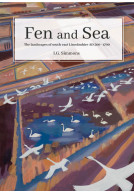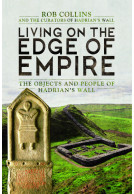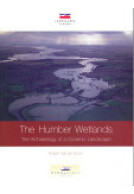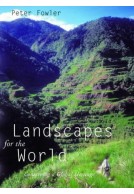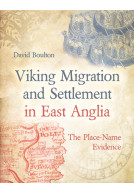Fen and Sea (Paperback)
The Landscapes of South-east Lincolnshire AD 500-1700
By
I G Simmons
Imprint: Windgather Press
Pages: 240
Illustrations: B/w and colour
ISBN: 9781911188964
Published: 15th November 2021
Script Academic & Professional
Imprint: Windgather Press
Pages: 240
Illustrations: B/w and colour
ISBN: 9781911188964
Published: 15th November 2021
Script Academic & Professional
You'll be £11.00 closer to your next £10.00 credit when you purchase Fen and Sea. What's this?
+£4.99 UK Delivery or free UK delivery if order is over £40
(click here for international delivery rates)
Order within the next 5 hours, 12 minutes to get your order processed the next working day!
Need a currency converter? Check XE.com for live rates
(click here for international delivery rates)
Order within the next 5 hours, 12 minutes to get your order processed the next working day!
Need a currency converter? Check XE.com for live rates
Renowned environmental historian I.G. Simmons synthesises detailed research into the landscape history of the coastal area of Lincolnshire between Boston and Skegness and its hinterland of Tofts, Low Grounds and Fen as far as the Wolds. With many excellent illustrations Simmons chronicles the ways in which this low coast, backed by a wet fen, has been managed to display a set of landscapes which have significant differences that contradict the common terminology of uniformity, calling the area 'flat' or referring to everywhere from Cleethorpes to King's Lynn as 'the fens'.
These usually labelled 'flat' areas of East Lincolnshire between Mablethorpe and Boston are in fact a mosaic of subtly different landscapes. They have become that way largely due to the human influences derived from agriculture and industry. Between the beginning of Norman rule and the advent of pumped drainage, a number of significant changes took place.
The author has accumulated information from Roman times until the beginnings of fossil-fuel powered drainage, bringing together both scientific data and documentary evidence including medieval and early modern documents from the National Archive, Lincolnshire Archives, Bethlem Hospital and Magdalen College, Oxford, to explore the little-known archives of regional interest.
“Simmons has made intelligible a landscape that has changed dramatically over the past two millennia, highlighting the labours of pre-modern people and a world they made which has subsequently been lost to the pump and the plough, and may sometime in the future be lost to the sea.”
Agricultural History Review - June 2024
About I G Simmons
Ian Simmons retired from the University of Durham in 2001 and applied himself to the landscape history of the area to which he had been a wartime evacuee. This required different skills from the palynology of earlier years and he was grateful for help with both finance and the interpretation of documents from a number of archives. A number of papers in journals have appeared as well as this book.
Customers who bought this title also bought...
Other titles in Windgather Press...







